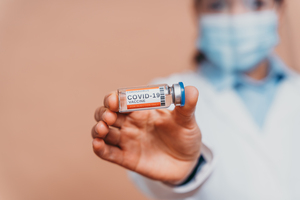Pneumococcal disease is a serious infection caused by Streptococcus pneumoniae bacteria. It can lead to pneumonia, meningitis, blood infections, and even death—especially in young children, older adults, and those with certain medical conditions.
Fortunately, pneumococcal vaccines offer strong protection against the most dangerous strains of the bacteria. With multiple vaccine types available, most people only need one or two doses for long-lasting protection. Learn if you’re eligible and how to get vaccinated.
What is pneumococcal disease?
Pneumococcal disease refers to a group of infections caused by Streptococcus pneumoniae bacteria. These bacteria can invade different parts of the body and cause serious illnesses like pneumonia (lung infection), meningitis (infection of the brain and spinal cord), and bacteremia (bloodstream infection). The disease spreads through respiratory droplets when an infected person coughs or sneezes.
While some pneumococcal infections are mild, invasive pneumococcal disease can lead to long-term complications or be life-threatening—particularly for young children, older adults, and those with weakened immune systems.
Pneumococcal vs. pneumonia
Pneumonia is a type of lung infection—and pneumococcal bacteria are one of its most common causes. However, not all pneumonia is pneumococcal, and not all pneumococcal disease leads to pneumonia. Pneumococcal disease also includes infections of the blood, brain, ears, and sinuses, and its impact can be more severe than typical respiratory illnesses.
Who is most at risk?
Certain groups are at higher risk for developing pneumococcal disease, including:
- Children under age 5, especially infants
- Adults aged 50 and older, especially 65+
- People with chronic conditions like heart, lung, liver, or kidney disease
- Individuals with weakened immune systems
- People with cochlear implants or cerebrospinal fluid leaks
- Smokers and those with alcohol use disorders
Some racial and ethnic groups, including Alaska Native, African American, and certain American Indian populations, also face a higher risk, though the exact reasons are still being studied.








